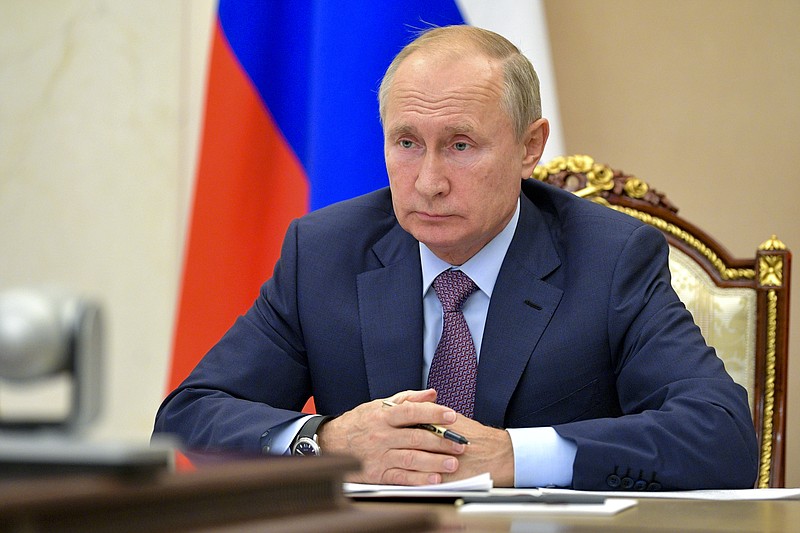WASHINGTON (AP) - In quick succession, the U.S. and Russia on Friday rejected each other's proposals for potentially salvaging the last remaining legal constraint on their strategic nuclear forces. President Vladimir Putin called for an unconditional extension of the New START treaty, and the White House called that a "non-starter."
Adding an edginess to the U.S. rejection of Putin's approach, President Donald Trump's national security adviser, Robert O'Brien, suggested the Russians rethink their stance "before a costly arms race ensues."
The Trump administration recently proposed a one-year extension of the 2010 treaty, which is set to expire in February 2021, but it said this must be coupled with the imposition of a broader cap on U.S. and Russian nuclear warheads. The cap would cover warheads not limited by the New START treaty.
O'Brien issued a written statement just hours after Putin spoke in Moscow. He said the U.S. approach "would have been a win for both sides," and that he thought the Russians were willing to accept this proposal when he met with them in Geneva on Oct. 2.
"President Putin's response today to extend New START without freezing nuclear warheads is a non-starter," O'Brien said. "The United States is serious about arms control that will keep the entire world safe. We hope that Russia will reevaluate its position before a costly arms race ensues."
While Putin is offering to extend the New START as it is, the U.S. wants a broader, temporary freeze on all nuclear warheads, including battlefield nuclear weapons that aren't covered by the treaty, which only limits strategic nuclear arsenals. Moscow says it can't accept the demand.
Speaking at a meeting of his Security Council, Putin said "it would be extremely sad if the treaty ceases to exist without being replaced by another fundamental document of the kind."
"All those years, the New START has worked, playing its fundamental role of limiting and containing an arms race," he noted.
The New START treaty was signed in 2010 by President Barack Obama and Russian President Dmitry Medvedev. The pact limits each country to no more than 1,550 deployed nuclear warheads and 700 deployed missiles and bombers, and envisages sweeping on-site inspections to verify compliance.
After both Moscow and Washington withdrew from the 1987 Intermediate-range Nuclear Forces Treaty last year, New START was the only nuclear arms control deal between the two countries still standing.
Putin on Friday proposed to "extend the existing treaty without any conditions for at least one year" to allow for "substantive talks," instructing Russian Foreign Minister Sergey Lavrov to get a quick U.S. answer to the offer. He emphasized Russia is ready to discuss the new weapons it has deployed in future arms talks with the United States.
Russia previously offered the pact's extension for five years without any conditions, while the U.S. administration pushed for a new arms control agreement that would also include China. Moscow has described that idea as unfeasible, pointing to Beijing's refusal to negotiate any deal that would reduce its much-smaller nuclear arsenal.
Speaking earlier Friday, before he was aware of Putin's remarks, O'Brien said the U.S. had made "a relatively straightforward proposal that we extend New START for a year and that the Russians cap their nuclear warhead number for a year," but added "negotiating with Russia is never easy."
O'Brien also observed "it may be that, like other countries, the Russians are waiting to see what happens" in the Nov. 3 U.S. election.
He added: "It very well may be that the Russians don't respond and continue to build warheads and refuse to short term freeze and we'll take that into account."

